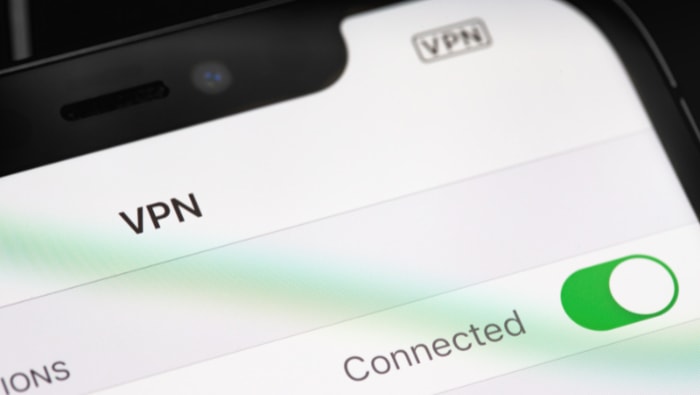What Is a VPN Kill Switch? How It Prevents IP Leaks

A VPN promises total online privacy, but that protection is only as strong as its connection. When your VPN momentarily disconnects, a tiny security gap opens, exposing your IP address and browsing data to your internet provider and anyone watching. These brief, often unnoticed, drops can undo the very privacy you sought to protect.
This is where a VPN kill switch becomes essential. It acts as an automatic fail-safe, instantly severing your internet access the moment your VPN connection falters.
Defining the VPN Kill Switch
A VPN kill switch is a specialized security feature designed to protect your online privacy if your VPN connection unexpectedly fails. Its purpose is to act as a fail-safe, immediately blocking all internet traffic from your device the moment the encrypted tunnel disconnects.
Even a momentary lapse in your VPN connection can expose sensitive information, and a kill switch prevents that from happening by creating a final line of defense for your data.
Automatic Internet Cutoff
The primary job of a kill switch is to sever your device’s connection to the internet automatically. When your VPN is active, all your traffic is routed through a secure, encrypted tunnel.
If that tunnel collapses for any reason, the kill switch activates and stops any data from being transmitted over an unsecured network. This action prevents your actual IP address, DNS queries, and online activities from becoming visible until the secure VPN connection is re-established.
Preventing Accidental Data Exposure
Without a kill switch, short and often unnoticeable VPN interruptions can reveal your identity and browsing habits to third parties. Your internet service provider, the websites you visit, and others on the network could see your unencrypted traffic during these brief outages.
A kill switch is important because it closes this vulnerability. It ensures that your online presence remains private, safeguarding you against accidental data leaks that occur during network switches, server reboots, or other common connection disruptions.
Strengthening Your Privacy Posture
A kill switch complements the encryption provided by a VPN, creating a more robust and complete privacy solution. Encryption protects the content of your data, but it cannot help if the connection itself is lost.
The kill switch addresses this gap by managing the integrity of the connection itself. By preventing data leaks during periods of network instability or when the VPN application crashes, it reinforces your overall security and provides a higher degree of confidence that your information will remain private at all times.
How a Kill Switch Works

A VPN kill switch functions as a vigilant security guard for your internet connection. It continuously monitors the status of your VPN tunnel and, upon detecting a failure, applies strict firewall or network rules to block all internet traffic.
This process ensures no data can leave your device through an unencrypted channel. Once the VPN service restores a secure connection, the kill switch typically disengages automatically, allowing traffic to flow again without requiring manual intervention.
Monitoring and Blocking Traffic
The core mechanism of a kill switch involves constant surveillance of the connection between your device and the VPN server. It watches for any sign that the encrypted tunnel has been compromised or has dropped.
The moment a disconnection is detected, the kill switch instantly implements a pre-set rule to block all network traffic. This action effectively prevents your device’s operating system from rerouting traffic through your standard, unprotected internet connection, which would otherwise happen automatically.
Common Kill Switch Triggers
Several events can cause a VPN connection to drop and consequently activate a kill switch. A frequent trigger is changing networks, such as when your device switches from a Wi-Fi network to a mobile data connection.
Other causes include instability with the VPN server itself, which can result from high traffic congestion or temporary timeouts. Additionally, software conflicts on your device, like an antivirus program or a firewall interfering with the VPN client, can lead to connection failures that engage the kill switch.
Integration with Operating Systems
For the most reliable protection, many kill switches integrate directly with the device's operating system. On Android, for example, the “Always-on VPN” feature can be paired with the “Block connections without VPN” setting to enforce a system-wide block.
Desktop VPN clients often achieve a similar outcome by directly manipulating the platform’s firewall rules. This OS-level integration provides a more robust form of protection because it operates independently of the VPN application itself, ensuring that no traffic can leak even if the app crashes or freezes.
Types of VPN Kill Switches
VPN kill switches are not all created equal; they vary in their method of operation and the scope of protection they offer. Different implementations provide a balance between comprehensive security and user flexibility.
The most common variations are system-level kill switches, which offer the broadest protection, and application-level versions that provide more selective control. Some services also feature persistent modes that block all traffic by default until a secure connection is active.
System-Level Kill Switch
A system-level kill switch, also known as a network-level or firewall-based kill switch, provides the most comprehensive security. It operates at the operating system level, blocking all internet traffic from your device if the VPN connection drops.
Because it controls the main network gateway, it prevents any application on your device from sending or receiving data outside the encrypted VPN tunnel. This all-or-nothing approach ensures that no data leaks can occur, making it the preferred choice for users who require maximum privacy.
Application-Level Kill Switch
For users who need more flexibility, an application-level kill switch offers a targeted approach to security. Instead of shutting down the device's entire internet connection, this type allows you to select specific applications that will be blocked if the VPN disconnects.
For example, you could configure it to cut off internet access for your web browser and file-sharing client while allowing other apps, like online games or system updates, to continue functioning. This granular control is useful when you only need to protect the data from certain programs.
Persistent Kill Switch
A persistent kill switch, sometimes called an “always-on” mode, enforces the strictest security posture. It establishes a “block by default” rule, meaning your device cannot access the internet at all until a secure VPN connection is established.
A major advantage of this mode is that it remains active even after a system restart or if the VPN client itself crashes. It effectively closes the security gap that can exist between your computer booting up and you manually activating the VPN, ensuring continuous protection.
When to Use a Kill Switch

A kill switch is most valuable in situations where even a brief exposure of your online activity could have significant consequences. While it is a good practice for all VPN use, it becomes essential when privacy is paramount.
Without a kill switch, a split-second VPN disconnection can reveal your real IP address and browsing data to your internet service provider, websites, and any third parties monitoring the network.
High-Risk Scenarios
Certain online activities and environments carry a higher risk of exposure, making a kill switch indispensable. When using public Wi-Fi hotspots at cafes, airports, or hotels, your data is particularly vulnerable to interception, and a kill switch ensures protection if your VPN falters.
Frequent travelers who connect to unfamiliar networks can also benefit greatly from this feature. Additionally, for activities like torrenting or accessing sensitive financial accounts and confidential work resources, a kill switch provides a necessary layer of security, preventing accidental leaks that could compromise your information.
Risks of Exposure Without a Kill Switch
Operating without a kill switch leaves you vulnerable during VPN outages or network transitions. If the connection drops, your device’s traffic immediately reverts to your standard, unencrypted internet connection.
This exposes your true IP address to every website you visit, allowing them to pinpoint your general location. Your internet service provider can also see your DNS requests and the sites you access. This momentary visibility can compromise your anonymity and undo the privacy benefits of using a VPN in the first place.
The Practical Trade-Off
Using a kill switch involves a practical trade-off between uninterrupted connectivity and absolute privacy. At times, the feature may temporarily block your internet access, which can feel like an interruption to your workflow.
However, this short loss of service is a small price to pay for preventing your personal data and identity from being leaked. For anyone serious about maintaining their online privacy, accepting these minor disruptions is a reasonable compromise for the assurance that their information remains secure.
Enabling, Configuring, and Troubleshooting
Most reputable VPN services include a kill switch, but it often needs to be activated manually. Taking the time to enable, configure, and test this feature is a critical step in ensuring your online privacy is fully protected.
You can also adjust its settings to find the right balance between security and usability, as well as take steps to address frequent connection disruptions that may trigger it.
Enabling and Verifying the Kill Switch
You can typically find the kill switch option within the settings or preferences menu of your VPN client application. Once enabled, it is wise to verify that it functions correctly.
A simple way to test it is to connect to the VPN, start a large download or stream, and then manually disconnect the VPN connection. If the kill switch is working, your internet traffic should halt immediately.
For more robust protection, you can use built-in operating system features where available, such as Android's “Always-on VPN” function, which enforces the block at a deeper level.
Configuring Application Exceptions and Scope
Depending on your VPN provider, you may be able to choose between a system-level kill switch and an application-level one. A system-level kill switch provides comprehensive protection by blocking all internet traffic from your device.
An application-level switch gives you more granular control, allowing you to select specific apps to be cut off from the internet during a disconnect. This option is useful if you want to secure high-risk applications like a browser or torrent client while allowing low-risk programs to remain connected.
Minimizing Connection Disruptions
If you find that your kill switch is activating frequently, it may be a sign of an unstable VPN connection rather than a problem with the kill switch itself. To minimize these disruptions, try switching to a different VPN server that may be less congested or geographically closer to you.
You can also experiment with changing the VPN protocol, as some are more stable than others on certain networks. Finally, ensure your VPN client is up to date and check if your firewall or antivirus software is interfering with the connection, as you may need to add an exception for the VPN application.
Conclusion
A VPN kill switch provides a critical fail-safe, preserving your online privacy during the brief and often unnoticed interruptions that can compromise a VPN connection. By automatically blocking all internet traffic until the secure tunnel is restored, it effectively closes security gaps that could otherwise expose your identity and activity.
For robust, everyday protection, you should enable this feature by default within your VPN client. Selecting the type of kill switch that best fits your security needs and workflow, and taking a moment to verify that it functions as intended on your devices, ensures your digital privacy remains intact even when your connection is not.


